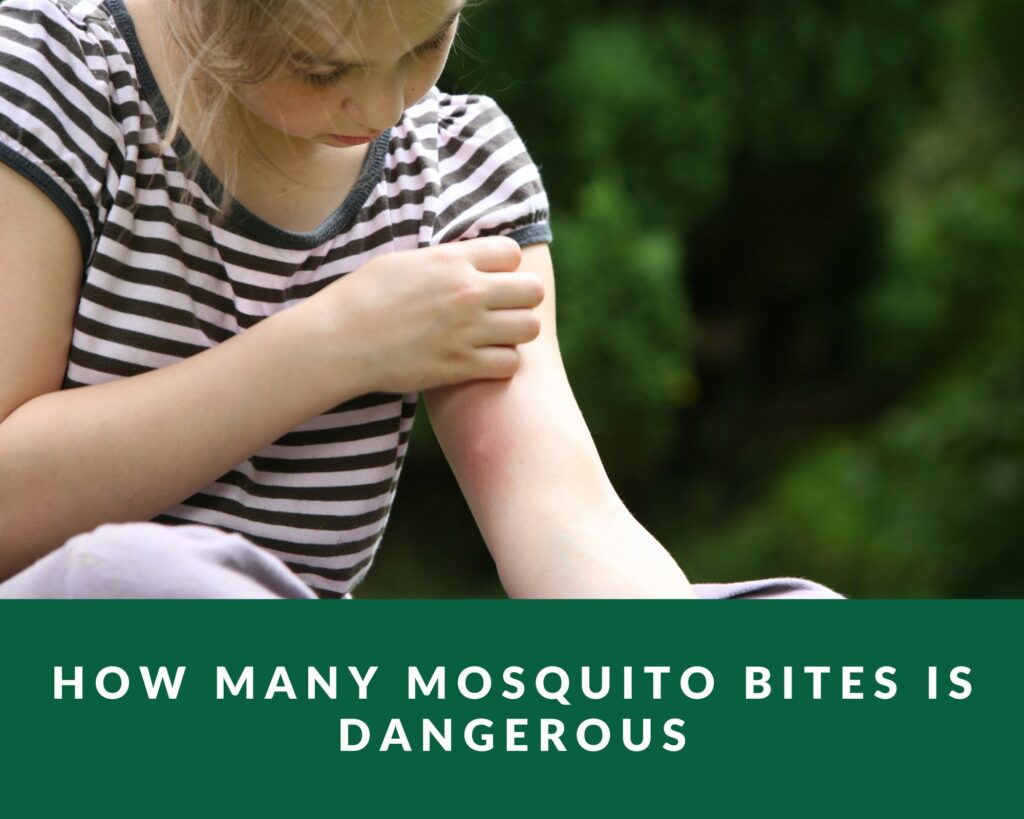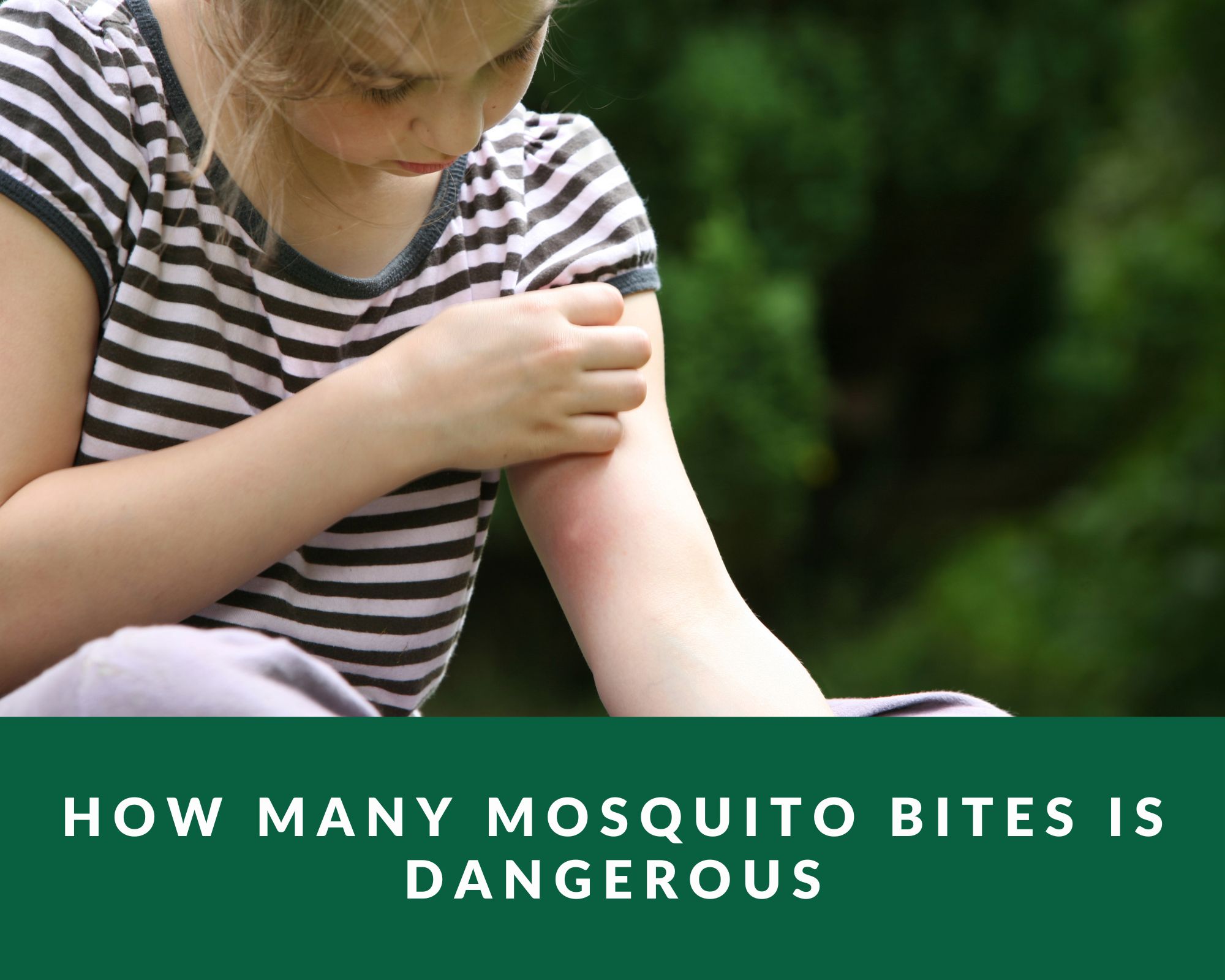
Almost everyone has endured the uncomfortable sensation of a mosquito bite. The red mark and itching from mosquito bites are the result of an allergic reaction to the saliva of the mosquito. This brings us to the discussion of how many mosquito bites is dangerous.
However, the spread of dangerous infections may be a more severe effect of particular mosquito bites. In this post, you’d learn how many mosquito bites can be harmful to humans as well as various precautions.
How do mosquito reproduce
A relatively small amount of blood is drunk when female mosquitoes bite people and other animals. To create eggs, they require the iron and protein found in blood. After consuming blood, they seek some water that is still and lay their eggs there.
The mosquito eggs develop into larvae, then into pupae, and finally into adult mosquitoes. The females can live for several weeks while the males only live for around a week to ten days.
In the winter, certain female mosquitoes can sleep and survive for months.
How many mosquito bites is dangerous
It would only take one infected mosquito to pour its saliva into you to cause harm. Moreover, the likelihood of contracting the disease after being bit by an infected mosquito is approximately 1 in 300.
As a result, there is very little likelihood that getting bitten by an infected mosquito will result in the development of illness symptoms.
However, this does not imply that people should adopt a smug attitude. The bite site turns red, itchy, and swollen as a result of an allergic reaction brought on by the mosquito saliva.
Male mosquitoes do not bite. You are more attractive to mosquitoes if it’s warm outside, it’s light outside, you smell bad, or you sweat.
A bite from a mosquito has probably happened to most individuals at some point. Typically, you yank a mosquito away and put up with the itchy, uncomfortable sensation.
6 Common Diseases Caused By Mosquito Bites.
The most harmful result of a mosquito bite is the possibility of contracting a deadly disease. Mosquitoes can carry and spread a number of dangerous diseases, including:
1. Malaria
One of the chronic diseases that affects people is malaria. It is among the most well-known diseases brought on by mosquitoes. It is brought on by the Plasmodium malarial parasite. When female Anopheles mosquitoes feed on human blood, they spread this parasite.
If malaria is not treated, there is a genuine risk to your life. However, malaria medications are widely accessible in most regions. There is no transmission of malaria. It spreads through:
- Blood donation
- Mother to child
- Shared needles and syringes (in some cases)
- Transplantation of organs
2. Dengue fever
This illness may result in a high fever, rash, painful muscles, and joint pain. In the worst circumstances, there’s a chance of fatal hemorrhage, shock, and other complications. Tropical and subtropical areas are where dengue disease predominates.
3. Yellow fever
The mosquito Aedes , which also transmits dengue fever, transmits the deadly disease yellow fever. The majority of those who have this virus do not exhibit any symptoms. But in the worst circumstances, it can get worse and the symptoms can get worse as well.
It is one of the prevalent illnesses that can affect both people and monkeys and is brought on by a mosquito bite. Significant organs including the heart, liver, and kidney are affected if the infection gets bad enough.
4. Chikungunya
An infectious virus called chikungunya infects people and is spread by infected Aedes mosquitoes. Fever, joint discomfort, headache, muscle soreness, joint swelling, and rash are among the usual symptoms. The majority of the time, a patient’s condition gets better within a week; nevertheless, on rare occasions, the joint discomfort may persist for months or even years. Zika and dengue overlap certain clinical symptoms with chikungunya, which could result in wrong diagnosis in regions where these infections are common.
5. Elephantiasis
Elephantiasis, often referred to as lymphatic filariasis, is a condition that can make skin thick and rigid like an elephant’s, as well as causing arms and legs to enlarge. In tropical locations, it affects countless low-income individuals and is transferred by infected mosquitoes.
The majority of infected individuals do not exhibit any overt symptoms, yet they may still experience renal and lymph system damage. They still have a role in the parasite’s spread.
6. Zika virus
Many regions of the world are concerned about the Zika virus. While the majority of those who contract the Zika virus experience only minor symptoms or no disease at all, the virus has also been associated with life-threatening illnesses, such as Zika congenital disorder in newborns.
Preventing mosquito bites
Because mosquito-borne illnesses claim millions of lives each year throughout the world, preventing mosquito bites is usually more successful than attempting to treat them. Take a look at the following precautions:
- Putting up window screens.
- Utilize insect repellents.
- Eliminating standing water.
- Being protected against mosquitoes by a bed net.
- Wearing light-colored, limb-covering clothing.
- To allow for free drainage, drill holes in the bottoms of outdoor recycling bins.
- Make sure to clear blocked roof gutters and that they are properly draining.
Conclusion
More than any other organism in the world, humans suffer from mosquito bites. Over a million people die each year from illnesses spread by mosquitoes. And by being aware of the diseases that different species of mosquitoes can transmit, you can take precautions against them and deal with the consequences.
Consult your doctor if you believe you were bitten by a mosquito and you are worried about your health.

